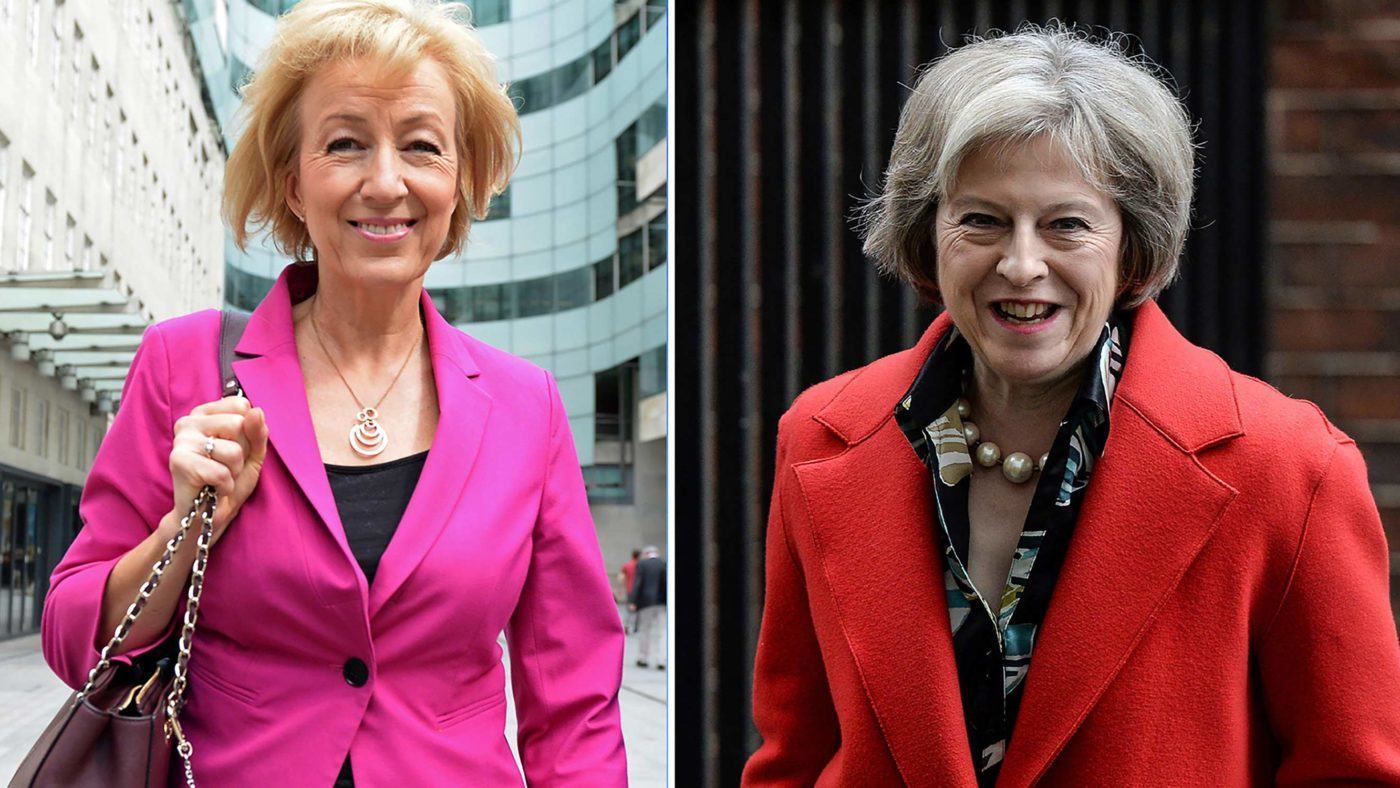This is the weekly newsletter from CapX. To receive it by email every Friday, along with a short daily email of our top five stories, please subscribe here.
After the live performances finished and the judge’s votes tallied, Theresa May and Andrea Leadsom will go forward to the public vote in what the Guardian’s Frankie Boyle has drolly described as “a sort of X Factor for choosing the antichrist”. As a Conservative member I’ll be among the 150,000 who get to choose the next party leader and therefore Britain’s next Prime Minister.
Home Secretary Theresa May is the clear favourite, with the overwhelming backing of Tory MPs and, if polls are still to be believed, of party members too. Most of us will have become wary of putting too much stock in frontrunner status. This is spoken of as a very recent phenomenon – from last year’s general election result, to Jeremy Corbyn, Donald Trump, and Vote Leave all coming from behind to emerge victorious. But to do so ignores a number of the great political upsets of modern times – Ed Miliband becoming Labour leader, Obama defeating Hillary, John McCain losing out to George W. Bush in 2000, and back to John Major and Bill Clinton in the early 90s – that show the position of front runner can be a poisoned chalice.
Nothing can be guaranteed, and this is apparent when considering the chances of May’s opponent Andrea Leadsom. The energy minister was one of the stars of the Vote Leave campaign, approaching the ITV debate with an air of optimism that managed to outshine even Boris Johnson (albeit followed by a par but less impressive performance in the BBC debate). While it is probably true she entered the leadership race expecting to be offered a high profile position in Boris’ cabinet, she has endured and risen above the backstabbing to make the final two.
There is much to be admired about Leadsom. A true blue Brexiteer, she is on the right side of not only the Conservative membership (about 65-35 for Brexit), but also the national electorate. Leave was successful in almost all of the places Conservatives do well (parts of the South East commuter belt aside), and the places they will hope to do even better in 2020 (the North, Wales).
This doesn’t mean we should gloss over the unknowns and gaffes that Team Leadsom have suffered before succeeding in last night’s vote. Revelations about Leadsom’s CV or past thoughts on gay marriage show that this is not yet a polished campaign. Given Team May has experienced Westminster journalists like former Sky deputy political editor Joey Jones spinning for it, Leadsom will surely need to make additions to her over-performing team if she is to counter the attacks that come her way. Yesterday’s march on parliament was an excruciatingly self-conscious experience for Tories not used to taking to the streets, but it did its job – the MPs organising it had a real fear tactical voting would keep their candidate off the ballot.
The speech, while full of buzzwords that make free-marketeers like myself go giddy, needed more substance. This is a charge that could have been levelled at early Thatcher of course, but she had years in opposition to shape her intellectual grounding. There is an immediate vacancy for a Keith Joseph figure. The Leadsom campaign has stormed social media but Twitter is not the electorate, and never has this been truer than with the membership of the Conservative Party.
This is not to say Theresa May is faultless. A safe pair of hands she may be, but it’s that kind of thinking that gave England’s football team Roy Hodgson. Seemingly unimaginative, and unlikely to pursue any kind of radical reforming agenda, May is a return to grey conservatism, the shiny New Labour gloss of modernisation finally having peeled from the airbrushed billboards of David Cameron’s face. There is also the small matter of six years of authoritarian and reactionary policy making emanating from the Home Office during her tenure – from the sinister Communications Data Bill to the thoroughly shameful Psychoactive Substances Bill that overturns centuries of British legal tradition by declaring behaviour illegal unless the state first authorises it. May could perhaps alleviate the fears of civil libertarians by appointing her surprise backer, David Davis, to his old shadow brief of Home Secretary and allowing him to review policy, though this seems unlikely. Nonetheless, May is a formidable and incredibly capable political heavyweight, and if the Conservative party continues to value obvious winners over ideology as it did in 2005, it will hand her a huge victory.
I expect the race to be far closer than it currently appears. Front-runner May has all the advantages and everything to lose – Leadsom has the ‘momentum’ of the insurgent candidate and more appealing Tory bona fides. The media, clamouring to attack Leadsom for headlines and hits, may only increase her support as in the cases of Trump and Corbyn.
What is clear is that Andrea Leadsom is no Jeremy Corbyn. Leadsom is a serious politician who has been on the policy unit at Number 10, served as Economic Secretary to the Treasury, and impressed in Cameron’s government. She does not have a long record of opposing her own party and denigrating everything her colleagues have worked towards. Were she to win, Conservative MPs would enthusiastically swing behind her to get on with running the country. If she failed to live up to their high standards, the Tories would also prove they are not the Labour Party. The opposition’s documented inability to commit regicide (Brown, Miliband) is now playing itself out in the most humiliating fashion, as a party that has no faith in Corbyn’s leadership ability limps on afraid to challenge him. The Conservatives have no such fears; just ask Iain Duncan Smith. And if the party can survive Thatcher’s bitter downfall, it knows it can survive anything.


